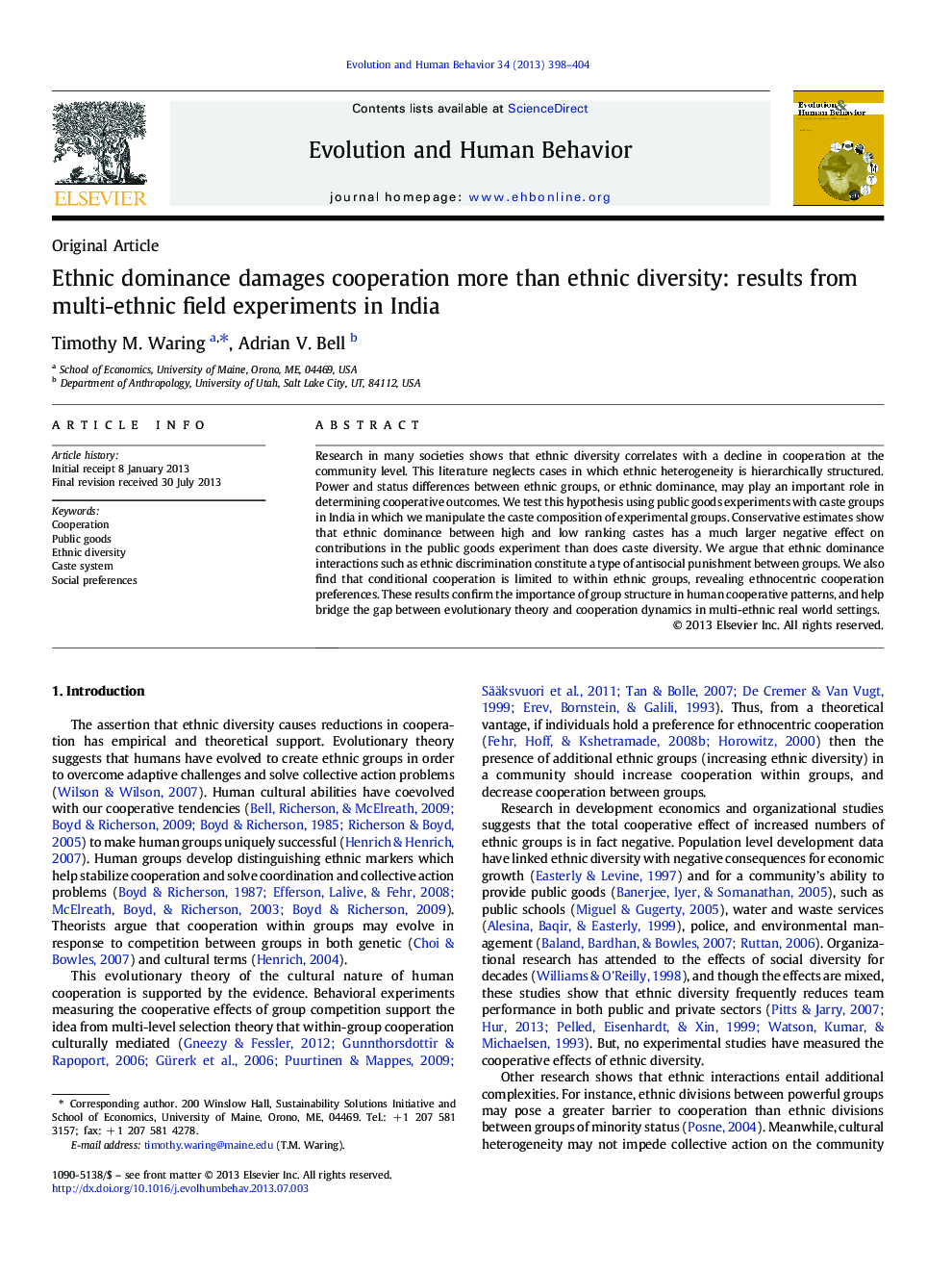| Article ID | Journal | Published Year | Pages | File Type |
|---|---|---|---|---|
| 943154 | Evolution and Human Behavior | 2013 | 7 Pages |
Research in many societies shows that ethnic diversity correlates with a decline in cooperation at the community level. This literature neglects cases in which ethnic heterogeneity is hierarchically structured. Power and status differences between ethnic groups, or ethnic dominance, may play an important role in determining cooperative outcomes. We test this hypothesis using public goods experiments with caste groups in India in which we manipulate the caste composition of experimental groups. Conservative estimates show that ethnic dominance between high and low ranking castes has a much larger negative effect on contributions in the public goods experiment than does caste diversity. We argue that ethnic dominance interactions such as ethnic discrimination constitute a type of antisocial punishment between groups. We also find that conditional cooperation is limited to within ethnic groups, revealing ethnocentric cooperation preferences. These results confirm the importance of group structure in human cooperative patterns, and help bridge the gap between evolutionary theory and cooperation dynamics in multi-ethnic real world settings.
